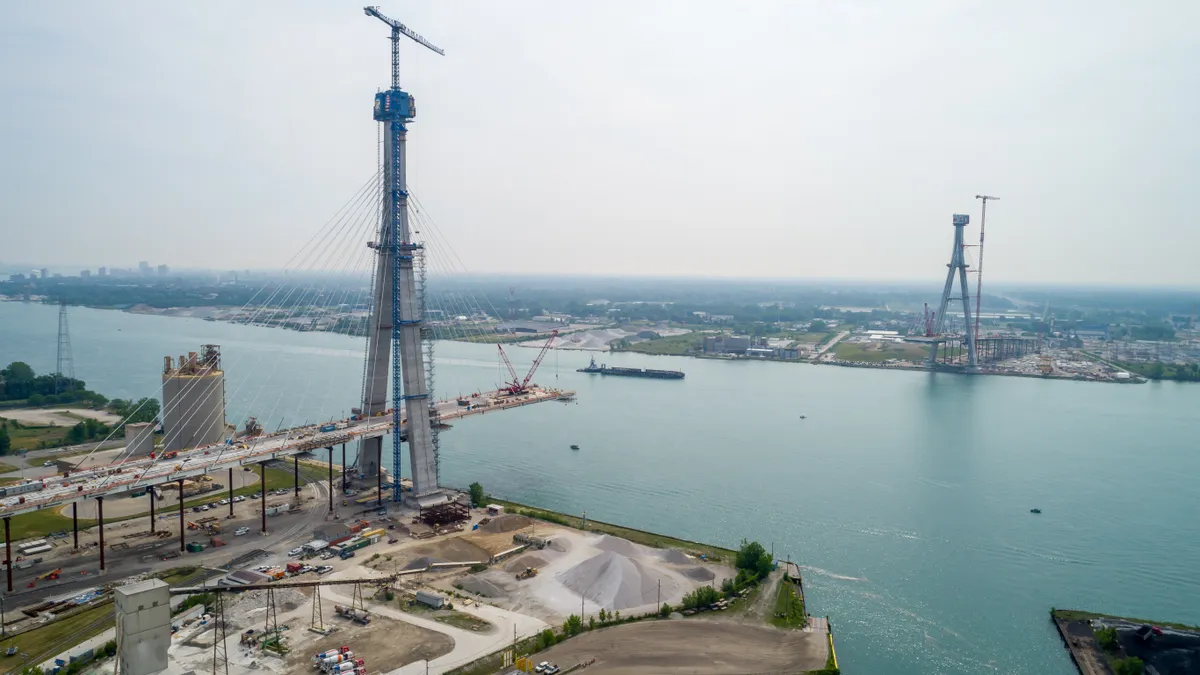Dive Brief:
- The Gordie Howe Bridge project has pushed its completion date and raised its cost by $700 million Canadian dollars ($523.6 million), according to a Jan. 4 press release from the Windsor-Detroit Bridge Authority.
- Officials blamed the delay on issues that came with the start of the COVID-19 pandemic, according to the release. Rather than the original timeline of November 2024, construction on the new span that will connect Windsor, Ontario, to Detroit will finish in September 2025 with a new price tag of $6.4 billion.
- News of the setback, however, was not surprising — in 2022, an analysis from S&P predicted that the bridge would likely not open until August 2025, nine months after its initial target date.
Dive Insight:
WDBA and builder Bridging North America, a consortium of Irving, Texas-headquartered Fluor, Madrid-based ACS Infrastructure and Aecon of Toronto, jointly agreed to extend the timeline and cost, per the release. The two entities are delivering the bridge as a public-private partnership.
Charl van Niekerk, the bridge authority’s CEO, said the building team was glad it only incurred a 10-month delay, given the size and complexity of the project and the massive impacts the pandemic had on construction, according to the release. When finished, the bridge will aid one of the busiest land crossings between the two countries.
In addition, issues were exacerbated by the bridge’s status as an international project, which meant the building team had to jockey with two different sets of restrictions, from both the U.S. and Canada, per the release.
“With safety as our top priority, we will continue to work together to deliver this much needed infrastructure to the thousands of eager travelers ready to cross North America’s longest cable-stayed bridge,” van Niekerk said in the release.
The project, which began construction in 2019, has also dealt with unrelated issues that have stymied construction efforts. Last summer, a 100-foot-long section of road collapsed inward, and forced the project to halt for 18 days.
In an environment that’s benefited from the $1.2 trillion Infrastructure Investment and Jobs Act, public projects have generally been able to maintain momentum. Private, developer-driven projects, however, are experiencing difficulties as capital markets dry up and lines of credit become tighter.













